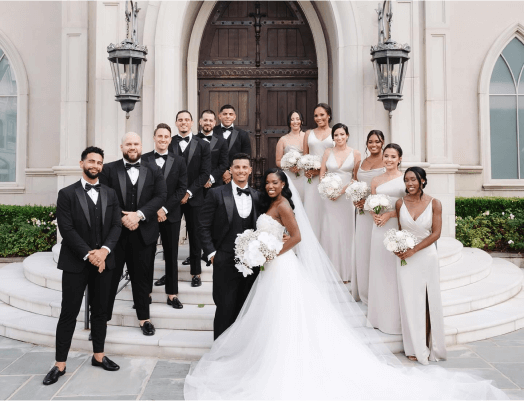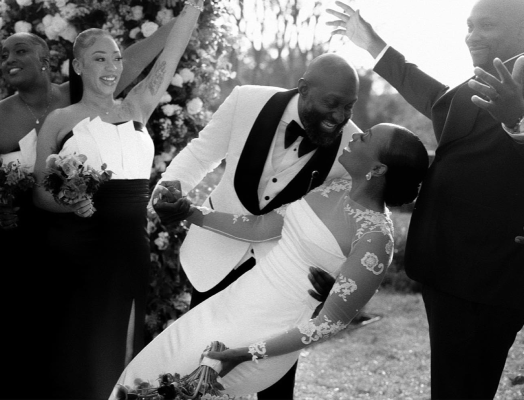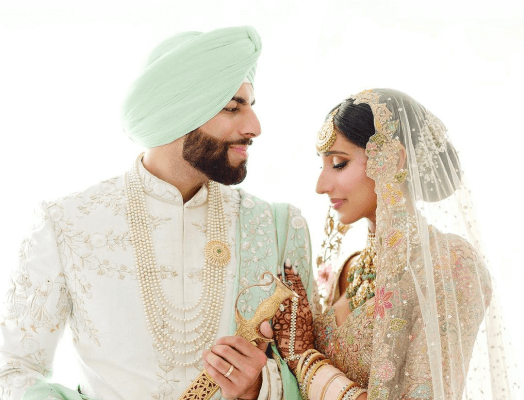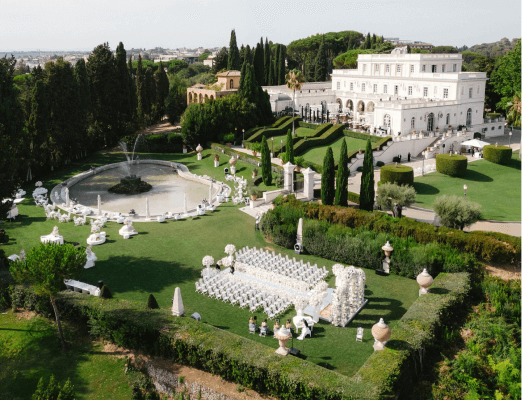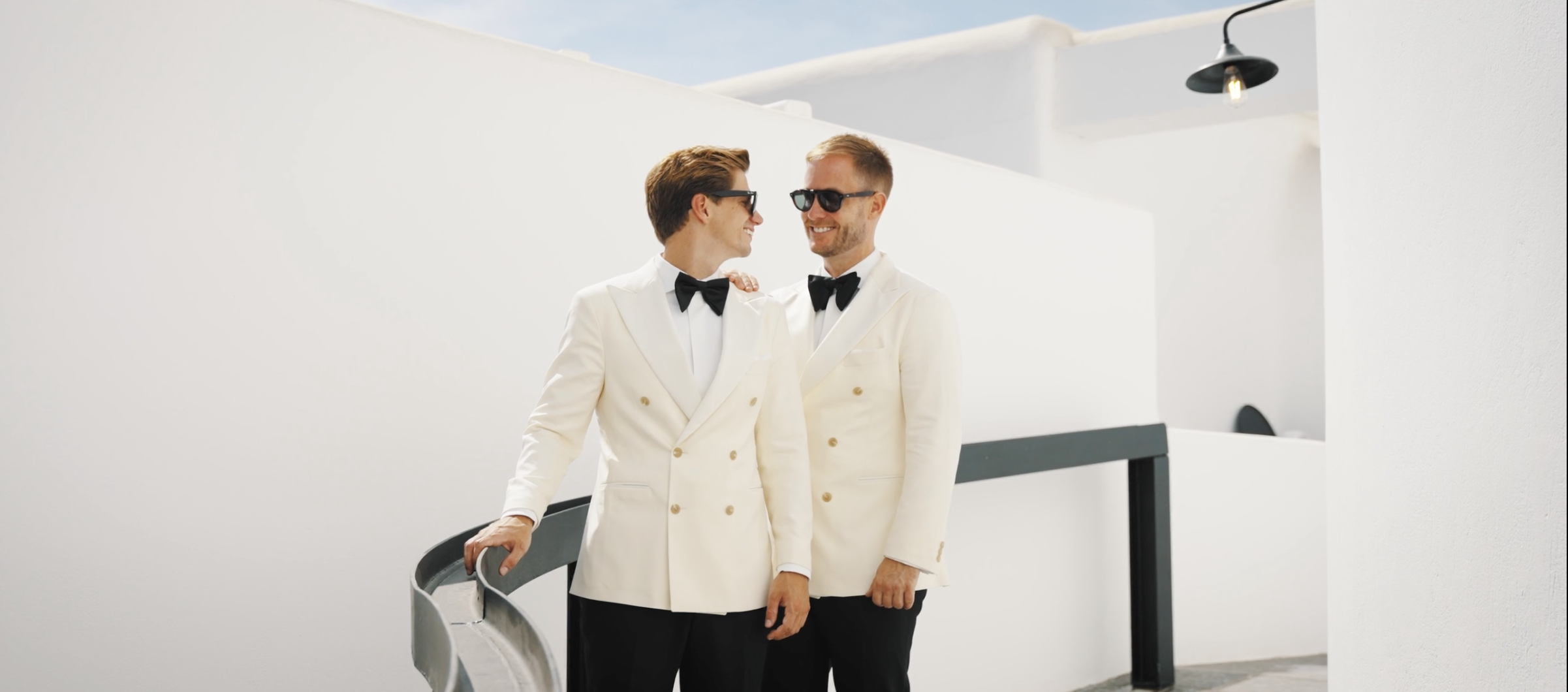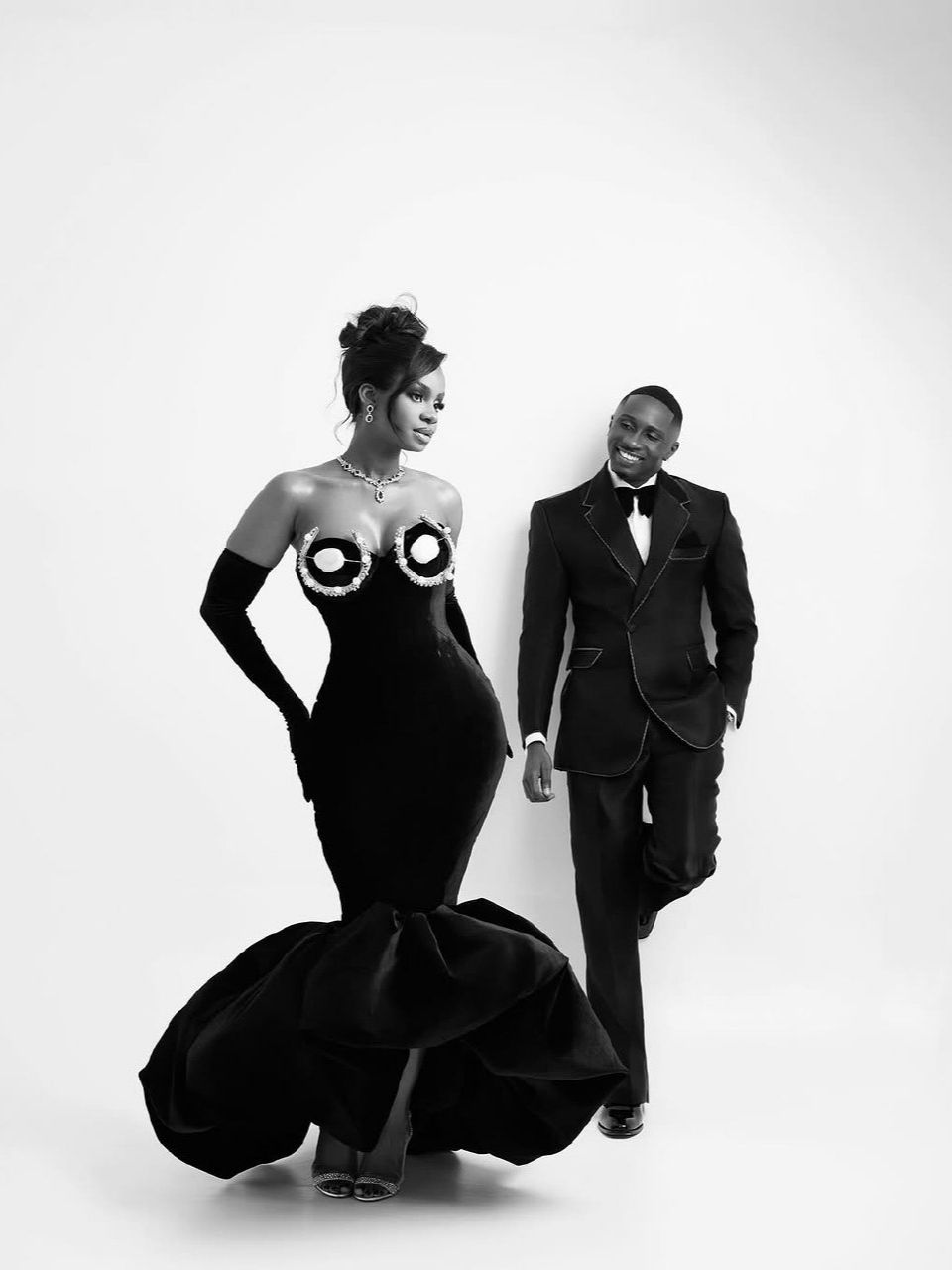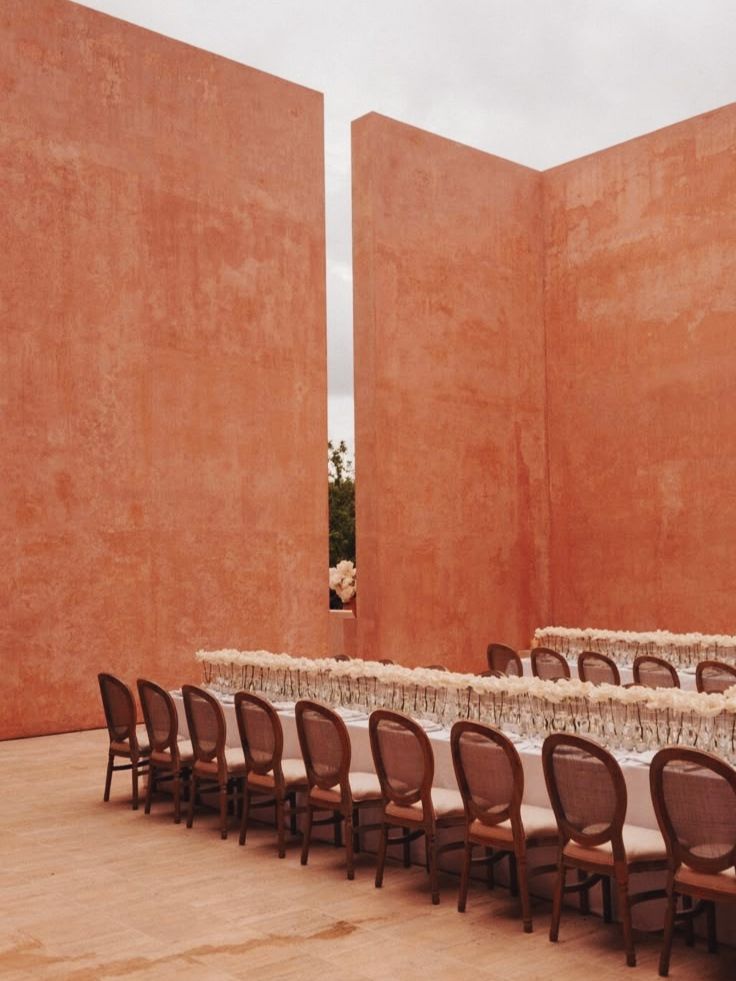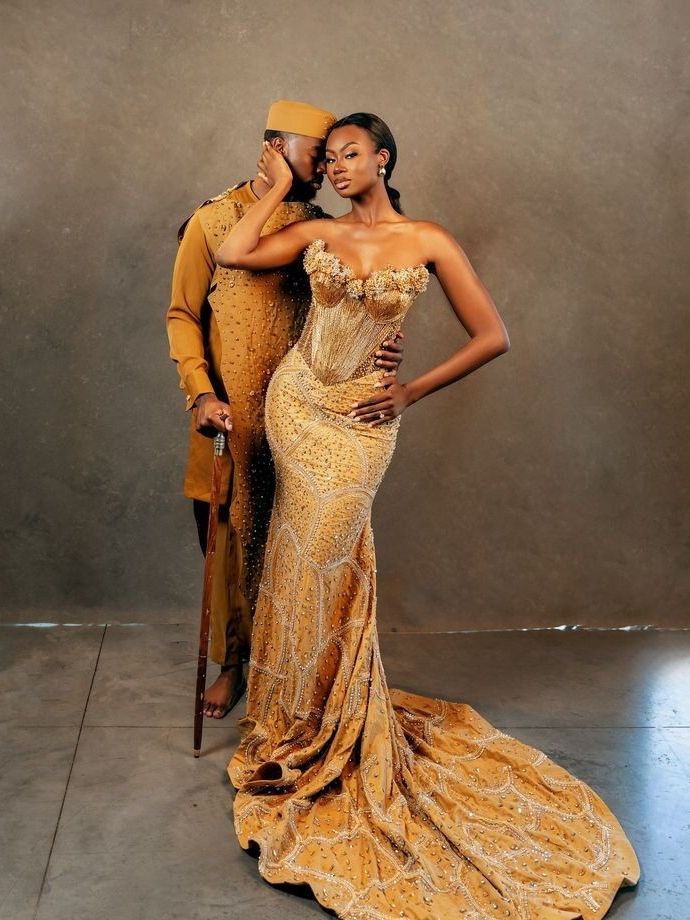Traditional Nigerian Wedding Attire & Customs
- Author: Natali Grace Levine
- Reading time: 5 min 56 sec
- Publication date: 04/29/2025
- Updated: 08/21/2025
A traditional wedding in Nigeria is a celebration of heritage, love, and the union of families. It goes far beyond a simple ceremony. It is an explosion of culture, color, tradition, and joy. While Western-style white weddings are common, the traditional Nigerian wedding holds a deeper cultural meaning and is often the more vibrant and anticipated event. Rich in rituals, music, dance, and symbolic gestures, it represents a strong sense of identity and pride.Nigeria is a country with over 250 ethnic groups, each with its own wedding customs and styles. Whether it’s an Igbo, Yoruba, Hausa, or Efik wedding, every traditional Nigerian wedding showcases a unique cultural narrative. From the moment families meet for the introduction ceremony to the final dance at the reception, each step is steeped in history and symbolism.
Find Your Perfect Wedding Vendors
Cultural Importance of a Traditional Wedding in Nigeria
A Nigeria traditional wedding is the foundation of marriage in many communities. It is not only about the couple; it is a union of families, a formal acknowledgment of relationship, and an event where customs are proudly displayed. The process typically begins with the introduction, where the groom’s family officially requests the bride’s hand in marriage. This is followed by negotiations of the bride price, gift exchanges, prayers from elders, and the blessing of the couple.Throughout the day, symbolic actions reflect traditional beliefs. For example, in Igbo weddings, the wine-carrying ceremony involves the bride searching for her groom and offering him a drink to show acceptance. In Yoruba culture, the groom and his men prostrate before the bride’s family to demonstrate humility and respect. In northern Nigeria, Hausa weddings reflect Islamic traditions, with events like the Kamu ceremony where the bride is unveiled.






Nigerian Traditional Wedding Dresses
A highlight of every traditional Nigerian wedding is the attire. Nigerian traditional wedding dresses are often handmade, luxurious, and designed to honor the bride’s heritage. They combine historical elements with modern fashion sensibilities, creating breathtaking ensembles that remain rooted in cultural identity.The styles of Nigerian traditional wedding dresses vary widely. Yoruba brides are often dressed in aso oke fabric, styled into a buba blouse, iro wrap skirt, and a gele headwrap. This regal attire is often paired with coral beads and embroidered accessories. Igbo brides typically wear wrappers made of George fabric, often in bright colors, along with beaded crowns, necklaces, and handheld fans. Hausa brides usually opt for dresses made of lace or silk, often complemented by intricate henna designs and colorful veils.Designers have continued to reinterpret these styles, leading to the creation of modern traditional wedding gowns in Nigeria. These gowns maintain traditional cuts and fabrics but feature refined tailoring, elegant embroidery, and a polished finish that makes them ideal for contemporary brides.











Traditional Nigerian Wedding Attire for Grooms
Grooms are equally important in traditional Nigerian weddings and are expected to dress in a way that reflects their heritage and status. The most common attire includes agbada or senator-style outfits. These garments are often crafted from damask, lace, or richly woven textiles and may include embroidery that signifies royalty or wealth.Matching caps complete the outfit, such as the fila for Yoruba grooms or the red cap for Igbo grooms. Grooms from northern Nigeria often wear flowing baban riga robes with embroidered caps. Jewelry, canes, and slippers may also be added to enhance the look. Thetraditional wedding bridal shoes in nigeria for men are dignified and majestic, perfectly complementing the bride’s elaborate ensemble.










Traditional Nigerian Wedding: The Meaning of Each Element of Clothing
A traditional wedding in Nigeria is never just about visual spectacle—it is a deeply spiritual and symbolic event that honors ancestors, community, and the divine. Across Nigeria’s regions and tribes, marriage is not simply seen as a contract between two individuals, but as a sacred covenant between two families. This cultural depth is why so many Nigerian couples—both at home and abroad—still prioritize a full traditional wedding ceremony.One of the most significant elements is the blessing of the elders. Elders from both families gather to offer their prayers, ancestral words of wisdom, and spiritual guidance to the couple. They invoke blessings for fertility, long life, prosperity, and peace in the home. In many Igbo and Yoruba weddings, the couple kneels before their parents or elders to receive these blessings—a gesture of respect and humility.In certain traditions, symbolic items are placed on a central mat or altar. These may include kola nuts (symbol of hospitality), honey (for sweetness in marriage), salt (for preservation), and alligator pepper (to ward off evil). Each item represents a virtue or value the marriage is expected to embody.









Symbolism and Community in a Traditional Wedding in Nigeria
Nigerian traditional weddings are centered around family, respect, and spiritual symbolism. The involvement of elders, the presentation of kola nuts, alligator pepper, and wine, and the ceremonial prayers reflect a desire to anchor the marriage in tradition and community approval.Gifts exchanged between families carry symbolic meaning. Items like yams represent fertility, fabrics suggest prosperity, and palm wine stands for life’s sweetness. In some Yoruba and Igbo weddings, the couple may break kola nuts together as a gesture of unity.Community is ever-present. Guests are not just observers—they actively participate in dances, songs, and symbolic gestures. Every action, word, and item used in the wedding is purposeful and steeped in meaning.A traditional Nigerian wedding is not a relic of the past—it’s a living, evolving celebration of cultural continuity. Through attire, song, ritual, and food, Nigerian weddings transmit values from one generation to the next. They preserve identity, build family bonds, and honor ancestors, all while celebrating the joy of love.Whether you are wearing a nigeria traditional wedding dress, joining in ancestral rituals, or dancing to the rhythm of traditional drums, you are part of a powerful expression of community, love, and cultural pride. These ceremonies remind us that marriage, at its best, is not just a personal journey—it is a deeply rooted, shared experience passed down through generations.A traditional wedding in Nigeria is never just about visual spectacle—it is a deeply spiritual and symbolic event that honors ancestors, community, and the divine. Across Nigeria’s regions and tribes, marriage is not simply seen as a contract between two individuals, but as a sacred covenant between two families. This cultural depth is why so many Nigerian couples—both at home and abroad—still prioritize a full traditional wedding ceremony.One of the most significant elements is the blessing of the elders. Elders from both families gather to offer their prayers, ancestral words of wisdom, and spiritual guidance to the couple. They invoke blessings for fertility, long life, prosperity, and peace in the home. In many Igbo and Yoruba weddings, the couple kneels before their parents or elders to receive these blessings—a gesture of respect and humility.In certain traditions, symbolic items are placed on a central mat or altar. These may include kola nuts (symbol of hospitality), honey (for sweetness in marriage), salt (for preservation), and alligator pepper (to ward off evil). Each item represents a virtue or value the marriage is expected to embody.















